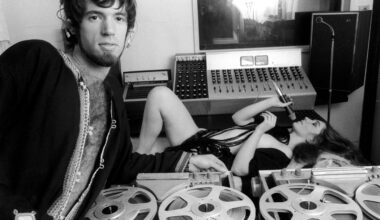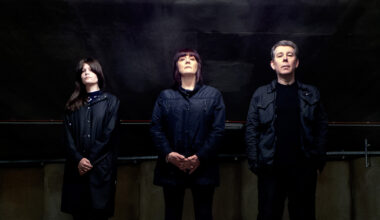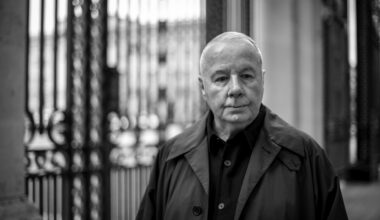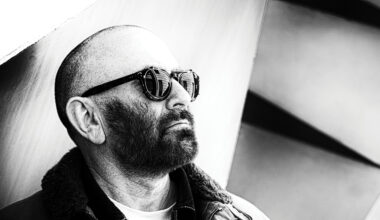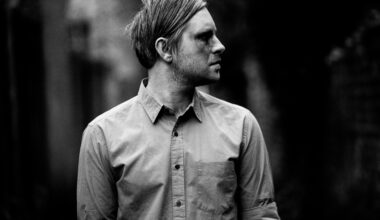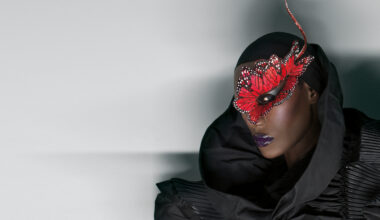The original folktronica trailblazer has really cranked up the ’tronica for her excellent new album, ‘Kidsticks’. Will the real Beth Orton please stand up?
“I find the word ‘folky’ really offensive,” says Beth Orton, with more than a touch of capriciousness. “I think it’s just so derogatory. What is ‘folky’? What does it actually mean? I don’t know if it exists in my records…”
It was a somewhat innocent, uncalculated remark on my part, which happened to include the offending word “folky”. It did confirm that Ms Orton is not quite the gentle, introspective singer-songwriter I had anticipated, though. She is opinionated and she peppers her responses with swearing. She is not afraid to be downright contrary, prickly even, particularly when asked a question she feels is obvious.
Witness her response when I ask her whether she likes the music of Andrew Hung from Fuck Buttons, her co-conspirator on her new album, ‘Kidsticks’.
“I don’t particularly,” she says, matter-of-factly. “I’m not that bothered. He was someone who did a remix of a song off my last album [2012’s ‘Sugaring Season’]. He was keen to work with me, I liked him and liked what he did for me on that record, and it was really just a thing of me going, ‘Oh, yeah, come out’. He said, ‘OK, might as well’, then he flew to LA.”
After years of making the aforementioned introspective acoustic music, Beth Orton has served up a truly impressive, state of the art, poppy electronic album, with influences along the lines of Japan and Blondie. Her collaboration with Andrew Hung, despite the seemingly inauspicious beginnings, has proved to be very fruitful indeed. In fact, for anyone vaguely acquainted with Orton’s musical trajectory, ‘Kidsticks’ sees her going back to her roots, to the days of working with William Orbit on ambient and techno productions during the early 1990s.
“Folk music is important to me and always has been,” she says. “I adore Joni Mitchell, Nick Drake and people like that, and my heart goes out to them, but to some degree I think that making acoustic music was kind of strangling me. This record was a complete liberation for me and allowed me to go back to many other parts of my world. It’s easy to say, ‘Oh, it’s LA’, or it’s this or it’s that, but it was just the music and it sort of took on its own life.”
Despite having been predominantly recorded in Los Angeles, where Beth Orton and her young family moved while making ‘Kidsticks’, the album has its roots in her formative years in Norwich in the late 70s and early 80s. It was at this time that she was first exposed to her older brothers’ record collections.
The opening track, ‘Snow’, with its angular chords and staccato funk, is reminiscent of the arty electro of Japan. ‘1973’ has such a powerful Blondie bent that it could have come straight from early 80s New York. It’s ebullient and bouncy with electronic flourishes and Orton’s breathy, Debbie Harry-esque vocals. ‘Falling’, on the other hand, is a glacial, slightly mournful ambient techno paean.
“Music was the great ruler in our house,” she notes. “One of my brothers was into punk and another was into Japan, so this album leads all the way back to the beginnings of my musical education. The only education I had in music was listening to The Slits and The Clash and Japan and Depeche Mode. For me, the music of that whole period was just so fucking exciting.”

Orton talks fondly about the Norwich scene, the clubs and venues she frequented from the age of 12, intimate leftfield hangouts such as The Jacquard and The Gala, as well as the popular soul and reggae nights at The Jolly Butchers. So who did she want to be when she was growing up? Who did she model herself on? Who were her pop stars?
“In terms of female role models, there were so many incredible people to look up to,” she says. “Blondie, The Slits, Siouxsie Sioux, Kate Bush, Tina Weymouth from Talking Heads. Thinking about it, I suppose I got quite bogged down in the woody history of folk and couldn’t hold it on my shoulders any longer. Until I started making this new record, I didn’t realise how important it was to shake that off, to be able to become myself more and access those other parts of my life.”
With its reinvention of the music of her past, ‘Kidsticks’ is as much an expression of Orton’s personality as the acoustic guitar missives for which she is renowned. I mention that the song titles – ‘Petals’, ‘Snow’, ‘Moon’, ‘Dawnstar’ – seem to have pastoral, romantic or nostalgic leanings.
“A lot of the titles are very throwaway,” she declares. “I’ve never been good at song titles so I don’t even try. I give them names and descriptions, it’s like, ‘This one’s the one with petals in it’, and that’s what sticks. I kind of like that. There’s a bit of cut and paste to this record, there’s a lot of holes in it. But I enjoy that. I enjoy the unfinishedness of it.”
I want to ask Orton about the influence of her parents. She lost her father when she was 11 years old, shortly after he had left her mother. Her mother died of cancer just before Orton turned 20.
While preparing for this interview, the Beth Orton that I imagined, the person I envisaged, had arty, bohemian parents and wasn’t much of a rebel because she didn’t need to be. She was someone who was quite mellow and rather hippy-ish. And yet it seems the opposite is the case.
“I was in a very bohemian world, but I wouldn’t say that my mum and dad were arty or bohemian at all,” she says. “My dad was pretty straight, but obviously he wasn’t around for long. Mum was a writer, but she was a very grounded person. She worked for The Guardian and was in the social work field.”
Losing her parents when she was so young must have been devastating and it would have forced her to confront some difficult questions very early in her life. Most people are in late middle age when their parents die and it is often the catalyst for a period of soul searching and thinking deeply about mortality. It might even make some people bitter.
“It’s like having kids, it’s very hard to pin down how it affects you,” says Orton. “On one level, I suppose I found losing my parents to be quite liberating. It span me out and I got a little bit wild. It was quite a heady experience to be young and completely alone in the world. Grief morphs and it doesn’t necessarily make you sober. It made me pretty drunk. For me, the sobriety came from having kids.”
And that’s the latest chapter in her personal life. A spell of single motherhood followed the birth of her daughter Nancy in 2006. Five years later, she had a son, Arthur, with her husband, the American folk musician Sam Amidon. Laudably, Orton has managed to combine a busy career with having children and, if ‘Kidsticks’ is anything to go by, her creativity hasn’t suffered. I ask if being a parent has changed her.
“Yeah, of course, and it’s influenced everything,” she says, without hesitating. “It grounded me and helped me to reconnect with my family. I didn’t realise how important that was for me until it happened, to have a sense of family and a sense of belonging. It really freaked me out, but it’s opened my mind a lot. That idea of the pram in the hallway inhibiting creativity? It was kind of the opposite for me, because it’s completely altered everything I do and given me a much wider perspective.”
Orton’s voice sounds different on ‘Kidsticks’. Perhaps that’s to do with the children, perhaps not. It’s stronger, gutsy even, more embodied, the folk lilt less audible.
“It’s different in the sense that I’m older and my voice has changed,” she admits. “But a very different part of myself made this record. I had to be quite driven to make it happen, to take control of it and take it where it went. There’s quite a lot of power in my voice and I think that definitely comes out. Not singing with the guitar has allowed another part to come through.”
After all that, I’m left wondering who the real Beth Orton is. Is she the fey, whimsical, folky singer-songwriter of ‘Trailer Park’ and ‘Central Reservation’? Is she the feisty, Debbie Harry-ish, belt-it-out vocalist of ‘Kidsticks’? Or is she maybe this prickly, slightly difficult character I encountered.
“I’ve always found it quite hard when people say, ‘You’re this kind of person’ and it’s usually like, ‘No, I’m not, never have been’,” she concludes. “I think it takes us all a long time to become who we actually are. It’s funny, when you get a bit famous, along the way you get very stuck with who you’re supposed to be. So it’s not like I’ve become a different person with this record, it’s more that I’ve made the record because of who I am.”
‘Kidsticks’ is out on ANTI-
